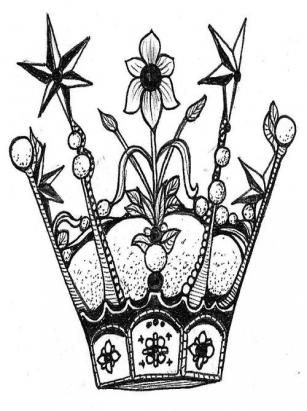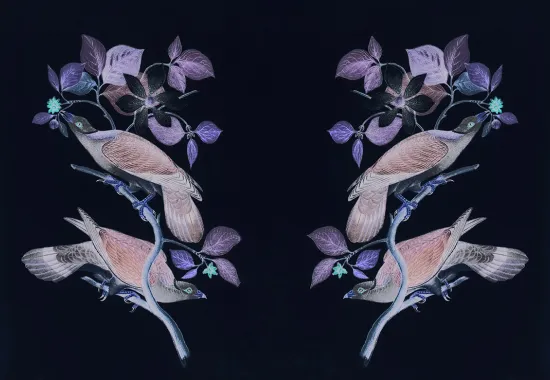Grief and Grace in the "Ghazal for Emilie Parker" from issue 299.2

This poem was written quickly, in response to the murder of twenty young students and six educators by a deranged shooter at the Sandy Hook Elementary School in Newtown, Connecticut, on December 14, 2012. The world was horrified by this event; outpourings of grief dominated the news and social media; and like many people I felt a need to respond in some way, as I followed the unfolding story over the next few days on National Public Radio. But the poem began only after I heard the NPR report on December 16, 2012, which featured Dr. Robbie Parker's tribute to his daughter Emilie, one of the murdered children. The story and interview, written by NPR reporter Russell Lewis and hosted by NPR's Rachel Martin, are still accessible on the web site of my local NPR affiliate station: http://www.kuow.org/post/father-humbled-too-short-life-his-daughter
I wrote a few lines that afternoon, inspired by this news report of Emilie Parker's father's press conference, as he recounted his final conversation with his daughter. He said, "I'd been teaching her Portuguese. So her last conversation was in Portuguese. She told me good morning and asked how I was doing. Said I was doing well. She said that she loved me. Gave me a kiss and I was out the door."
Those first two sentences of Dr. Parker's were galvanizing for me—I stood up as I heard them, went over to the radio and crouched beside it to listen more carefully. The fact that this grieving father's last conversation with his daughter was in Portuguese was the small, oblique, but (to me) moving detail that prompted the poem. I had learned some Portuguese years earlier in Brazil, when I spent several magical weeks in São Salvador da Bahia during Carnaval. Brazilian Portuguese had been close to my heart ever since; and more recently, I have been learning more through speaking with my beloved teachers of Zumba and Brazilian dance here in Seattle. But why Dr. Parker had been teaching this particular language to his daughter Emilie, remains a mystery.
father's last conversation with his daughter was in Portuguese was the small, oblique, but (to me) moving detail that prompted the poem. I had learned some Portuguese years earlier in Brazil, when I spent several magical weeks in São Salvador da Bahia during Carnaval. Brazilian Portuguese had been close to my heart ever since; and more recently, I have been learning more through speaking with my beloved teachers of Zumba and Brazilian dance here in Seattle. But why Dr. Parker had been teaching this particular language to his daughter Emilie, remains a mystery.
I wrote the first lines that afternoon—they are Dr. Parker's words almost verbatim. The poem formed itself into a ghazal right away, as the word Portuguese concluded both lines of the first couplet, thus establishing that it would be the refrain word required by the ghazal form. I wrote a few more couplets, each one ending with this refrain word. Later that same evening, I heard the broadcast of President Obama's tribute speech for Sandy Hook at a candle-light vigil held in Newtown. This speech ended with the President reciting the names of the dead children—and I found myself quickly hand-writing the twenty names on the closest paper at hand, a file folder cover, as President Obama stated them. I knew right away that this recitation of names would be the conclusion of the poem.
One reader of this ghazal, Samantha Updegrave, recently observed that, in the last two couplets, the refrain word is supplanted by this list of names. She noted that "listing the names is an interruption of the form and mirrors the interruption of these lives." Exactly: Portuguese, as language and as refrain word, ends when the girl's speech in any language is silenced, and she and all her named classmates' lives are interrupted by death.
Why vary the ghazal form? I felt the need to move in a more flexible manner. Emilie Parker's life was very short, like those of her classmates. Likewise, I sensed as I wrote it that this was going to be a short ghazal: there was a heavy freight of emotion, but it needed to remain understated and not drawn out. I wanted to honor these lives in this form so apt for melancholy, so instead of following all of the ghazal's formal hallmarks, I made use of others not necessarily part of the classical ghazal form.
All couplets ending with Portuguese as refrain word either rhyme or slant-rhyme (in our Western sense of rhyme: rhyming at the ends of lines): "Please / Portuguese; trees / Portuguese; boys / Portuguese; fields / Portuguese; grief / Portuguese." Then the refrain breaks off, with the muffled cry of "Oh"—the exhalation of last breath of those who died, the sound of lamentation of their grieving survivors—followed by the twenty names distributed in two couplets.
At the end of each of these final two couplets, in the place where the refrain word would be, there are the two names that rhyme: "Chase" and "Grace." The order of these twenty names at the end is the order in which, in his tribute speech in Newtown on December 16, 2012, President Obama recited them—except for Grace, which I put at the end for the sake of the rhyme. Though the refrain word had broken off, the end-rhyme pattern needed to continue to the conclusion of this modified ghazal.
his tribute speech in Newtown on December 16, 2012, President Obama recited them—except for Grace, which I put at the end for the sake of the rhyme. Though the refrain word had broken off, the end-rhyme pattern needed to continue to the conclusion of this modified ghazal.
Though it is modified, this ghazal does contain the traditional "makhta," the signature couplet in which the poet traditionally names him/herself. In the final couplet, at the end of the first line, is the name of one of the dead children, "Caroline." This is the saddest of happy accidents, of course, based on the tragic loss of this girl's life. If none of the dead children had had a name that was a version of the poet's name, "Carolyne," I might have done something else to conclude the poem. This ghazal happened very quickly, with a confluence of unfolding events and language that helped to create it. Because it was inspired by and based on a breaking news story, and a horrifically violent act that shattered so many families, it needed to be brief, understated (not about Poetry and big poetic gestures), and tied to the real-time events as they happened.
A terrible event enabled this poem, but I wrote it to honor these poor children, their murdered teachers and their bereft families. Only later did I contemplate the deeply spiritual resonances of the name Grace: out of terror and grief, in the end a spirit of grace honored me with this poem.
Published in the North American Review, Vol. 299, No. 2, Spring 2014, as Third Place winner of the James Hearst Poetry Prize.
Ghazal for Emilie Parker
(Newtown, Connecticut: December 14, 2012)
He had been teaching her to speak Portuguese
So their last words together were in Portuguese.
Such simple words that morning: Thank you. Please.
I love you, Daddy. All in Portuguese.
Then he rode off to work, past winter trees
And she to school, smiling to herself in Portuguese.
She fell with her classmates, the other girls and boys,
Folding into herself like snow. No tongue, no Portuguese,
No hearts that walk outside their lives in fields
That winter can’t amend. No Portuguese
Can call them back, unspeak their parents’ grief
In English, Spanish, Chinese, Hebrew, Portuguese—
Oh Charlotte. Daniel. Olivia. Josephine. Ana.
Dylan. Madeleine. Catherine. Chase.
Jesse. James. Emilie. Jack. Noah. Caroline.
Jessica. Benjamin. Avielle. Alison. Grace.
Carolyne Wright has published nine books of poetry, four volumes of poetry in translation from Spanish and Bengali, and a collection of essays. These books include Mania Klepto: the Book of Eulene (Turning Point Books, 2011); A Change of Maps (Lost Horse Press, 2006); and Seasons of Mangoes & Brainfire (Carnegie Mellon UP/EWU Books, 2005), which won the Blue Lynx Prize and the American Book Award. A poem of hers appeared in The Best American Poetry 2009 and the Pushcart Prize XXXIV (2010). A long-time contributor to NAR, Wright is a Contributing Editor for the Pushcart Prizes and a Senior Editor for Lost Horse Press, for whom she has co-edited the anthology, Raising Lilly Ledbetter: Women Poets Occupy the Workspace, for Lost Horse's Human Rights Series (2015). In 2005 Wright returned to her native Seattle, where she is on the faculty of the Northwest Institute of Literary Arts' Whidbey Writers Workshop MFA Program.
All illustrations by Vlad Alvarez: Vlad was born and raised in El Salvador, Central America. In 1992, he came to the U.S. and lived in Los Angeles before moving to Pennsylvania. He attended Tyler School of Art in Philadelphia and graduated in 2005 with a BFA in Graphic Design and Illustration.
Recommended
The Shirt
After Hearing David Rothenberg Sang with Birds
Frothing Pink Poodle Droppings





